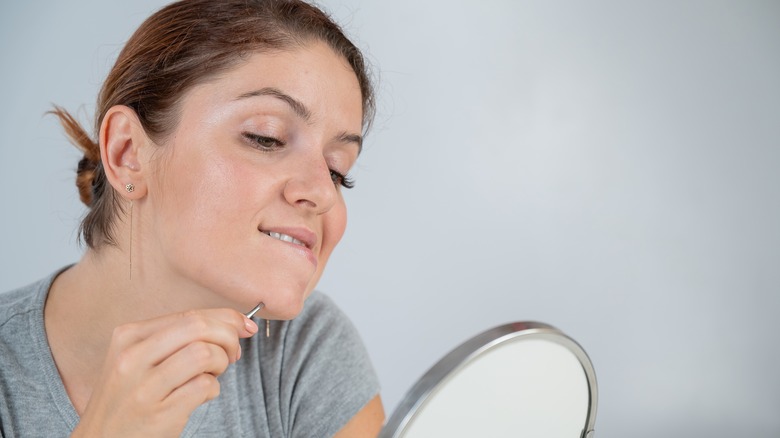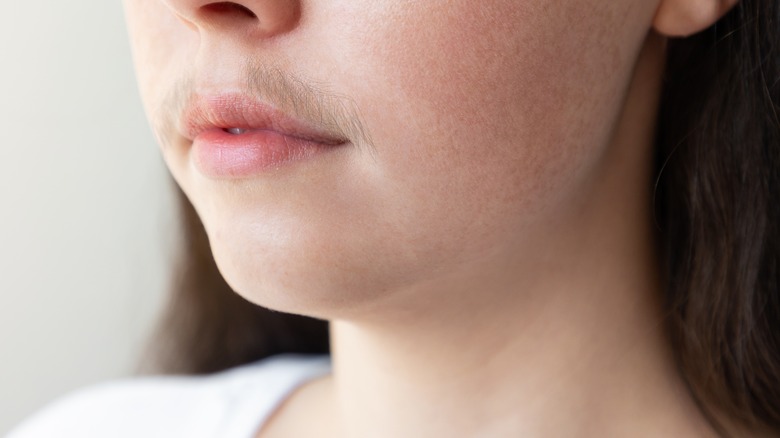Here's When You Should Be Concerned About Facial Hair Growth
Everyone has hair on their face to some extent. Facial hair can range from being blond and going unnoticed unless up close and in the sunlight, to being dark and more apparent. It also varies according to genetics, meaning certain people are predisposed to have more of it. A good tip is to look at the women in your family, because if they tend to have a lot of facial hair, the odds are high that you will, too.
While facial hair is normal and healthy, some women just don't enjoy the look of it. Cosmetically speaking, there are a host of hair removers including chemical compounds, exfoliators, and razors on the market. Some women choose to seek out a dermatologist and get laser hair removal, which has its own set of pros and cons (via Self).
Having facial hair isn't a problem if it stays consistent and is a product of your genetics. However, if you notice that your facial hair has grown in excess, especially if you notice a sudden increase (via MedlinePlus), it may be a signal that something is going on medically.
Increased facial hair may signal a hormonal imbalance
Facial hair is a natural part of every woman's face and is to be expected. "The appearance of peach fuzz or a stray dark, coarse strand of hair every once in a while [say, on your chin], shouldn't be a reason to sound the alarms," says the board-certified dermatologist Dr. Michelle Green (via Byrdie).
Yet, when facial hair increases at a fast rate, that's when it needs to be investigated. Known as hirsutism, or male-pattern hair growth, the hair tends to be especially thick and rough. Hirsutism can be a simple product of genetics or it can be caused by increased male hormones, known as androgens (via Mayo Clinic). Often when due to hormonal issues, it will appear suddenly and high testosterone may be the culprit.
Your doctor will look at your face to examine hair growth, but will also explore other places on the body. "Providers will examine areas that are known to be most sensitive to androgens, including the upper lip, chin, chest, abdomen, pubic region, arms, thighs, and back," says Dr. Shweta Desai, a board-certified urogynecologist.
What to do if you suspect a hormonal imbalance
If you've always had dark or thick facial hair, it could just be your DNA, but when facial hair increases quickly or becomes a new problem you've never had before, that's when you need to pay attention. It may be a sign of having high androgens. Other symptoms of high androgens include your voice deepening, gaining muscle, breast size decreasing, enlarged clitoris, increased sex drive, and acne (via Cleveland Clinic).
One of the common reasons for increased facial hair is polycystic ovary syndrome, or PCOS, a hormonal imbalance characterized by small cysts in the ovaries (though not always), increased facial hair, insulin resistance, and weight gain (via Johns Hopkins Medicine).
A good rule of thumb is that whenever you notice something change in your body, it's worth getting it checked out by a doctor. A gynecologist or hormone specialist can run blood tests to check your hormone levels.


